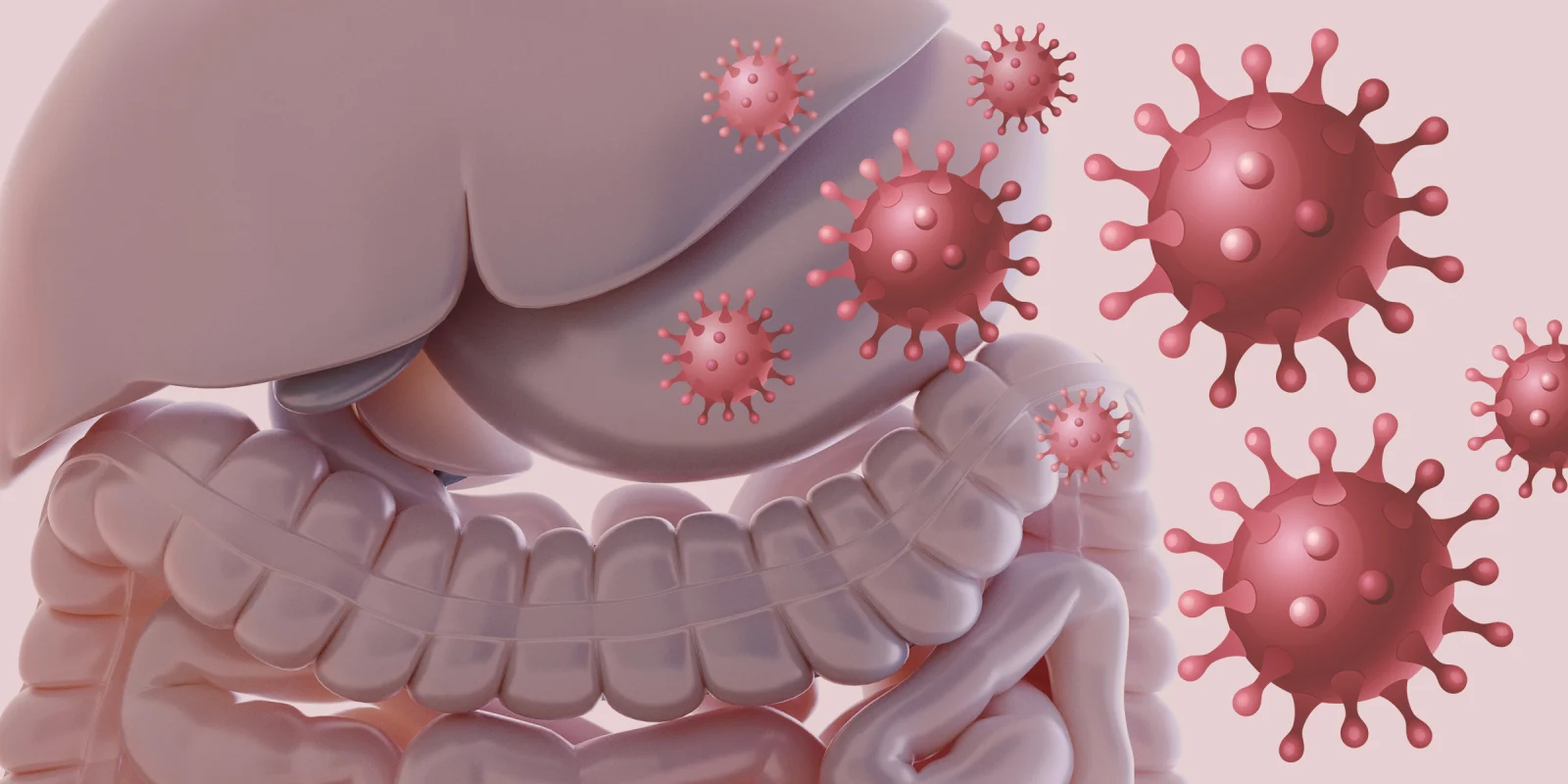Since the COVID-19 pandemic began, providers that care for patients with IBD have been faced with multiple questions regarding care of their patients. Over the last nine months, there has been much clarity on these questions which were discussed at the Virtual AIBD 2020 on December 10th during a session entitled “A Lens on COVID-19 and IBD.”
1. Is my patient with IBD more likely to contract COVID-19? There is no evidence that patients with IBD are at higher risk of contracting COVID-19 than the general population. Research from Belgium and the University of Miami demonstrate that COVID-19 entry cells are not increased in the mucosa of patients with IBD compared to controls. Some provocative unpublished data was presented showing that entry molecules are decreased in patients with IBD on biologic therapy. One could speculate then that IBD patients on biologic therapy are less likely to develop COVID-19.
2. Does my patient’s medical treatment increase the risk of them contracting COVID-19 or developing severe complications of the disease? Data from the Veterans Affairs showed no link between use of thiopurine or anti-TNF therapy on the risk of contracting COVID-19. Regarding risks of complicated COVID-19, defined as hospitalization, ICU admission, need for a ventilator, or death, there is no evidence that treatment with a biologic or JAK-STAT inhibitor is associated with these outcomes. Increased age and co-morbid conditions are associated with worse outcomes, identical to what is seen in the general population. An evaluation of the most up-to-date numbers from the SECURE IBD Registry suggest that ant-TNF and ustekinumab treatment may prevent these adverse outcomes. There is some controversy as to whether thiopurines with or without concurrent anti-TNF are associated with worse outcomes. The most up-to-date results do not suggest that patients are at a higher risk for worse outcomes although hospitalization rates are higher in patients on thiopurine monotherapy. Conversely, corticosteroids are associated with a complicated course of COVID-19. If possible, providers should make every attempt to taper steroids in patients with IBD (which is standard of care) and consider other treatments to induce remission in a flaring patient with IBD if possible.
3. Should my treatment strategies change during the COVID-19 pandemic? Providers should evaluate and treat patients with IBD as they did prior to the COVID-19 pandemic. This includes a comprehensive assessment of the severity of symptoms, inflammatory burden, and risk for a complicated disease course before initiating treatment. Patients with moderate to severe disease and/or with risk factors for a more severe disease course should receive highly effective therapy (biologic or JAK-STAT inhibitors). As mentioned above, avoiding steroids as a bridge to one of these treatments is advisable if possible. Treatment targets have not changed due to the pandemic either. There is still a strong emphasis on obtaining mucosal healing after initiating treatment, which often requires a follow-up endoscopic procedure. Hospitals and ambulatory endoscopy centers have put appropriate safeguards in place to protect patients, staff, and providers to facilitate access to endoscopy. However, if infection rates continue to rise, there may be greater restrictions on endoscopy which will require providers to utilize surrogate markers like C-reactive protein and/or fecal calprotectin to assess response to treatment.
4. What should I do if my patient develops COVID-19? For symptomatic patients, holding treatment is recommended. Before therapy is restarted, patients should be without a fever for 72 hours and have improved symptoms. Additionally, most providers do not recommend restarting therapy until 7–14 days have elapsed from the onset of symptoms. For patients with more severe COVID-19 symptoms or complications, providers should use their judgement on when to resume treatment, potentially delaying restarting treatment for a longer period of time. There is controversy about holding therapy in an asymptomatic patient who tests positive for COVID. Guidelines recommend holding treatment for 14 days to determine if a patient will develop severe symptoms. However, most providers do not endorse waiting this long to resume treatment in an asymptomatic patient. Providers can consider referring patients for monoclonal antibody treatment if available in their area. Referral of older patients, those with co-morbid conditions, and those on systemic steroids is indicated. The decision to refer patients without these risk factors on biologic or immunosuppressive therapies is less clear. My practice is to refer patients on thiopurine monotherapy due to the higher hospitalizations rates reported in patients receiving these treatments.
5. Should my patients receive the COVID-19 vaccine? Yes! There is substantial evidence regarding the efficacy and safety of the vaccine in healthy patients. Although we do not have data from patients with IBD regarding efficacy and possible impact on their underlying disease, the risks of COVID-19 infection far outweigh any concerns about the vaccine. It is possible that patients on steroids, immunosuppressants, and/or biologics will respond less avidly to the vaccine although even if that is true, it will likely provide some protection.







